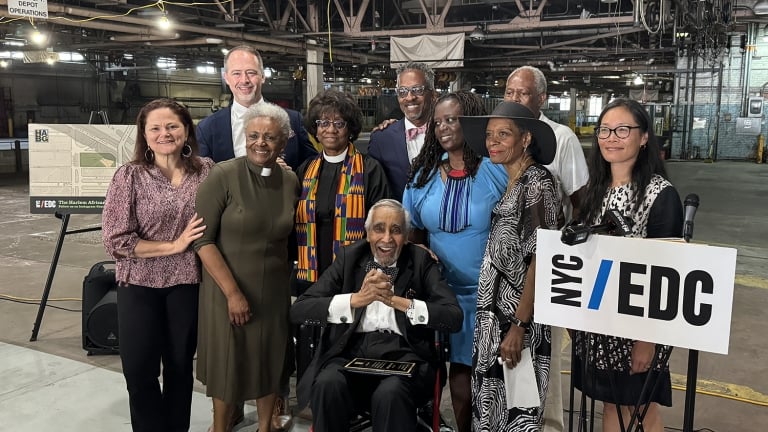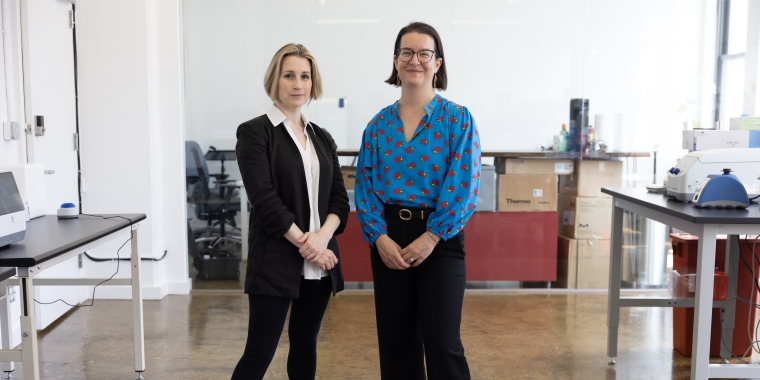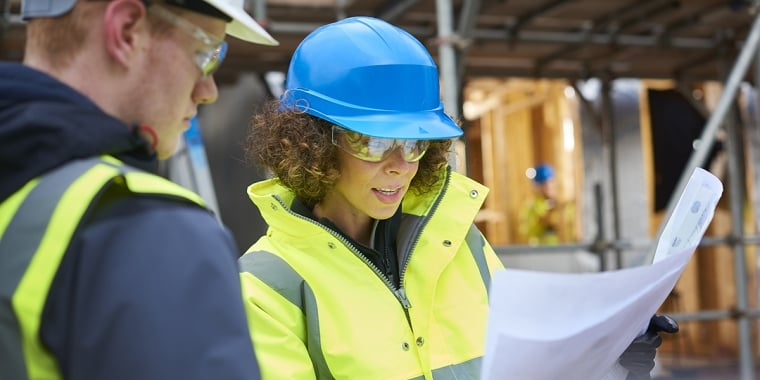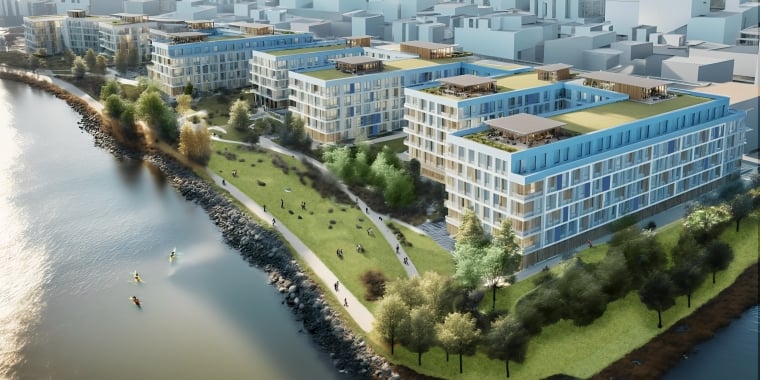NYCEDC, Harlem African Burial Ground Initiative and Harlem Community Come Together to Pay Respect at the Harlem African Burial Ground

The Ceremony Marks the Start of the Next Phase of Archaeological Work to Recover Human Remains Across the Former MTA Bus Depot Site
NYCEDC, in Collaboration with the Harlem African Burial Ground Initiative and Partners will Support the Realization of the 126th Street Harlem African Burial Ground and Mixed-Use Project
NEW YORK, NY—Today, the New York City Economic Development Corporation (NYCEDC), the Harlem African Burial Ground Initiative (HAGBI), and the Harlem Community gathered to pay respects to the legacy of African descendant contributions to the founding of Harlem. The ceremony marks the start of the next phase of archaeological work within the site of the decommissioned 126th Street Bus Depot in East Harlem to restore honor, dignity, and respect to those buried at this sacred site. The commemoration featured traditional African dance & drumming by Dionne C. Monsanto and Joyous Ocean Artist Ensemble followed by a live performance by Antoinette Montague and prayer and libations by the Elmendorf Reformed Church.
During this next phase of Archaeological Data Recovery work, AKRF Inc., selected by NYCEDC in October 2023, will lead the safe and dignified recovery of human remains from the historic burial ground, including fieldwork, laboratory analysis, cataloguing and production of a final Technical Report. Armand Corporation, a black and woman owned construction management firm, collaborating and coordinating with AKRF Inc., will manage the site operations to ensure a safe, secure and conducive work environment for the archaeological work. Simultaneously, Bridge Philanthropic Consulting will be leading the education and engagement campaign to raise awareness locally and nationally. The Archaeological Data Recovery and final Technical Report phase is expected to be completed in 2025.
“Today we are taking a major step to properly restore and honor the memory of the New Yorkers buried here as well as the African ancestry in New York City,” said NYCEDC President & CEO Andrew Kimball. “With this next phase of archaeological work, we hope to bring closure to a piece of Harlem and New York City’s history that has long been neglected and look forward to working with our partners at AKRF, Armand and BPC to ensure the Harlem African Burial Ground receives the memorial and development it deserves.”
“The next phase of archaeological work will finally bring closure to a long-neglected piece of New York City history, and we are incredibly proud of the advocacy the Harlem African Burial Ground Initiative did for this burial ground and its significance to the history of Harlem. We are thankful to NYCEDC, LPC, Armand, AKRF, BPC, and the Harlem community for working with us to ensure we properly honor our forgotten ancestors and look forward to working with them on the next phases including the memorialization of the enslaved and free New Yorkers of African descent,” said Harlem African Burial Ground Initiative Leadership Dr. Patricia A. Singletary, Melissa Mark-Viverito, Sharon Wilkins, and Melinda Velez.
“The Harlem African Burial Ground archeological survey and preservation is perhaps the most significant contemporary historical work happening throughout all of New York City and state. As the first phase of the archeological survey is complete, the work of ensuring historic preservation, community-building, and education remain as important as it was when this project started almost 20 years ago,” said Diana Ayala, Deputy Speaker of the New York City Council. “I am so proud of the work that has been achieved so far by the MTA, NYCEDC, and other community and government partners. Once complete, the HABG will be home to affordable housing, community-organizations, and a museum that elevates the stories of those once buried here.”
“The start of the next phase of the archaeological work at the 126th Street Harlem African Burial Ground Memorial is a significant moment for Harlem,” said Congressman Adriano Espaillat (NY-13). “This initiative not only memorializes the invaluable contributions of African descendants, but also addresses critical community needs in East Harlem. Today’s announcement is a testament of the power of community collaboration and the enduring legacy of our ancestors.”
“Today's ceremony and commencement of work marks an important step forward in properly documenting, understanding, and honoring the people who are buried here,” said Department of Cultural Affairs Commissioner Laurie Cumbo. “I look forward to seeing what more we can learn about some of our city's earliest Black residents, and to commemorating their lives, struggles, and triumphs at this important site.”
The next phase of archaeological work will establish the complete distribution of human remains across the bus depot site. It will be led by Michael Pappalardo and Dr. Elizabeth Meade from AKRF Inc., who managed the 2015 archaeological work at the site, collaborating with Dr. Rachel Watkins, biocultural anthropologist, and Dr. Aja Lans, bioarcheologist, both well-established experts specializing in the discovery and analysis of human remains of African descent.
“AKRF is honored to continue our nearly decade-long collaboration with the HABGI and NYCEDC through this next phase of the archaeological investigation,” said A. Michael Pappalardo, RPA, Senior Technical Director - Archaeologist and Elizabeth D. Meade, PhD, RPA, Senior Technical Director - Archaeologist. “We are proud to be working alongside Drs. Lans and Watkins to assist the HABGI and the Harlem community with the recovery of the human remains and to play a small part in the HABGI's long-term efforts to reclaim the burial ground as a sacred space.”
“Armand Corporation is deeply honored to serve as construction manager on the next phase of the Archaeological Data Recovery work for the Harlem African Burial Ground Initiative (HAGBI),” said Armand Corporation President & CEO Barbara Armand Kushner. As a Black-owned business, Armand’s Founder and staff are honored to be a part of this important endeavor undertaken by the NYC Economic Development Corporation, HAGBI, and the Harlem Community to restore honor, dignity, and respect to those buried at the site.
The archaeology work and education and engagement effort will support the realization of the 126th Street Harlem African Burial Ground and mixed-use project. The project, which was developed through a community-based planning process with the HABGI and approved through the ULURP process in 2017 with support from Community Board 11, will honor and memorialize the Harlem African Burial Ground with a permanent public outdoor memorial on the entire historic footprint of the burial ground, and an indoor cultural education center providing public programming about the burial ground and its history.
“Today marks the beginning of the next phase of archaeological work to take place at the Harlem African Burial Ground, a vital step to restoring honor and dignity to all of those who were buried there,” said New York State Senator Jose Serrano. “Thank you to the NYCEDC and Harlem African Burial Ground Initiative for their careful work to ensure that this site and its rich history are preserved and honored at each step of development.”
“To pay respect to the burial ground we must treat the planning around it with respect, and make sure that the community and historical stakeholders are part of the planning. we need organizations like Save Harlem Now, and individuals like Sylvia White to handle the recognition and memorializing of the individuals buried,” said New York State Senator Cordell Cleare. “The descendants of those buried need to be involved in the planning.”
“Today we commemorate the next phase of the Harlem African Burial Ground Initiative. When Community Board 11 approved the ULURP process in 2017, the community was inspired by the vision of recognizing our collective history and thus providing an opportunity to heal,” said Manhattan Community Board 11 Chair Xavier A. Santiago. “As we proceed to the next stage, we come one step closer to becoming a more united and thriving neighborhood.”
The project will address affordable housing and job creation needs in East Harlem on the remainder of the site through a mixed-use program including more than 600 units of housing, a minimum of 80 percent of which will be income-restricted affordable homes, commercial space and additional community space. The site was included as part of Mayor Adams administration’s “24 in 24” plan that aims to advance 24 affordable housing projects on public sites in 2024 that will ultimately create or preserve over 12,000 units of housing.
NYCEDC plans to release public RFPs for both an operator of the cultural education center and steward of the outdoor memorial and for a developer of the mixed-use project over the next couple of years after the conclusion of the archaeological fieldwork on site.
To learn more about the previous phase of archaeological work, please visit AKRF's website. To learn more about the Harlem African Burial Ground, please visit the HABGI’s Instagram and the 126th Street Harlem African Burial Ground Memorial and Mixed-Use Project webpage.
About NYCEDC
New York City Economic Development Corporation is a mission-driven, nonprofit organization that works for a vibrant, inclusive, and globally competitive economy for all New Yorkers. We take a comprehensive approach, through four main strategies: strengthen confidence in NYC as a great place to do business; grow innovative sectors with a focus on equity; build neighborhoods as places to live, learn, work, and play; and deliver sustainable infrastructure for communities and the city's future economy. To learn more about what we do, visit us on Facebook, Twitter, LinkedIn, and Instagram.
About Harlem African Burial Ground Initiative
Founded in 2009, the Harlem African Burial Ground Initiative (formerly known as the Harlem African Burial Ground Task Force) is a group of community leaders whose goal is to advocate for and guide remembrance, honoring, and memorialization for the Harlem African Burial Ground. HABGI is led by former District 8 City Council Member and Speaker Melissa Mark-Viverito, Pastor Emerita of Elmendorf Reform Church Rev. Dr. Patricia A. Singletary, former Manhattan Deputy Borough Historian Sharon Wilkins, and former Legislative Advisor and East Harlem resident Melinda Velez. To learn more about the Harlem African Burial Ground Initiative’s advocacy work, please visit HABGI’s Instagram.


